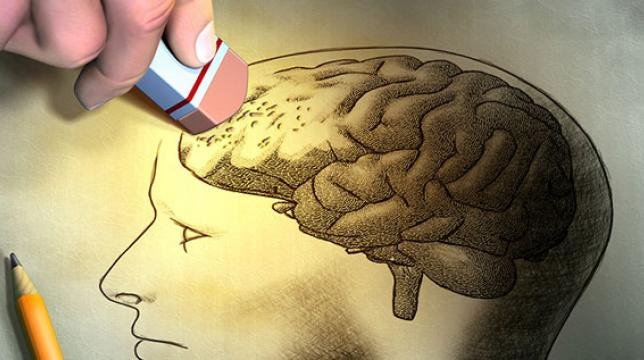Today the whole world is obsessed with gadgets: smartphones, tablets and other digital technology. Along with them, in the digital world of the virus penetrates dementia. And it's not a joke, it is diagnosed. In 2007, experts have noticed that every year more and more children - representatives of the digital generation to suffer the disorder of attention, memory loss, low self-control, cognitive impairment, depression, and depression. Studies show that in the brains of representatives of the digital generation observed changes similar to those that occur after traumatic brain injury, or in the early stages of dementia - dementia, which usually occurs in old age.

It's hard to believe, but the seven-year average European has spent more than a year at the screens of your life (24 hours), and 18-year-old - more than four years!
Would you say that now very different children? Yes, other children, but the brain have the same that was in man thousands of years ago - 100 billion neurons, each of which is associated with ten thousand of his kind.
The brain needs to develop and feed. All of our thoughts, actions, solve complex problems and deep reflections leave a trace in our brain. "Nothing can replace the fact that children are on their own, free and independent thinking as they explore the physical world and faced with something new" - says British professor of psychology Tanya Byron.
You'll be shocked, but since 1970 the activity radius of children (space around the house where children are free to explore the world around us) decreased by 90%! The world has shrunk to a smartphone screen. Children forgotten and, worse, simply do not know what it is - to run in the rain, to let boats, climb trees, or just chat with each other. They sit for hours, buried in your smartphone. But they need to develop their muscles, aware of the risks, which are prepared for them the world, and just interact with their friends. "It's amazing how quickly formed an entirely new type of environment where the taste, smell and touch are not encouraged, where most of the time we sit at the screen and not a walk in the fresh air and do not spend time talking face to face", - says Susan Greenfield. We definitely have something to worry about.
The brain is formed when there is external stimuli, and the more they will be - is better for the brain. Therefore it is very important for children to explore the world physically, but not virtually. This should be a growing brain, like a thousand years ago.
Also, a child needs a healthy and restful sleep. But today's children are not able to get out of the Internet and to break away from computer games. This greatly reduces the duration of their sleep and leads to violations. How can there be development, when you're tired and you have a headache, and school work can not climb in a head ?!
You may ask, how digital technology can change the child's brain? Firstly, the amount of external stimuli is limited because the web hanging monotonous. The child does not receive the required his expertise to develop sufficient critical areas of the brain responsible for empathy, self-control, decision-making ... And that does not work, dies. After all, the man who stopped going, atrophied legs? Children are not used to store information - it is easier to find it in the search engines. So much for memory problems. They did not train her.
Do you think that children are much smarter thanks to the Internet? Did you know that the current eleven-year carry out tasks on a level that showed an eight or nine-year children 30 years ago. The researchers note that one of the main reasons for this is life in the virtual world.
"I fear that digital technology make infantile brain, turning it into a kind of cerebral small children who are attracted by buzzing noises and bright light, which can not concentrate and live in the present moment", - says Susan Greenfield.
But you can still save her children! Just limit the time of use with all sorts of gadgets. You'll be surprised, but Steve Jobs, guru of the digital industry, it is well done. His children do not use at all iPads and other gadgets they were forbidden to use at night and on weekends.
Chris Anderson, editor in chief of the American magazine «Wired», one of the founders of 3D Robotics, also limit their children's use of gadgets. Anderson rule - no screens and gadgets in the bedroom! "I, like anyone else, I see a danger of excessive enthusiasm for the Internet. I myself have encountered this problem and did not want to have these same problems were with my children.", - says Chris Anderson.
Creator Sons Blogger and Twitter services can use their tablets and smartphones no more than 1 hour per day, and the director of the OutCast Agency, restricts the use of gadgets at home 30 minutes a day. His younger children do not have the gadgets.
Here's your answer to the question "what to do?". Take care of the younger generation. Think about what kind of future awaits them in 10-20 years when they now spend half a day in front of screens to its cutting-edge gadgets.
